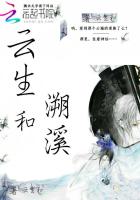"He was the scourge of imposture, the ponderous hammer which smote the brazen idolatry of his age." He labored to expose the vices that had taken shelter in the sanctuary of the Church,--a reformer of ecclesiastical abuses rather than of the lax morals of the laity, and hence did different work from that of Savonarola, whose life was spent in a crusade against sin, wherever it was to be found. His labors were great, and his attainments remarkable for his age. He is accused of being coarse in his invectives; but that charge can also be laid to Luther and other reformers in rough and outspoken times. Considering the power of the Pope in the fourteenth century, Wyclif was as bold and courageous as Luther.
The weakness of the papacy had not been exposed by the Councils of Pisa, of Constance, and of Basil; nor was popular indignation in view of the sale of indulgences as great in England as when the Dominican Tetzel peddled the papal pardons in Germany. In combating the received ideas of the age, Wyclif was even more remarkable than the Saxon reformer, who was never fully emancipated from the Mediaeval doctrine of transubstantiation; although Luther went beyond Wyclif in the completeness of his reform. Wyclif was beyond his age; Luther was the impersonation of its passions.
Wyclif represented universities and learned men; Luther was the oracle of the people. The former was the Mediaeval doctor; the latter was the popular orator and preacher. The one was mild and moderate in his spirit and manners; the other was vehement, dogmatic, and often offensive, not only from his more violent and passionate nature, but for his bitter and ironical sallies. It is the manner more than the matter which offends. Had Wyclif been as satirical and boisterous as Luther was, he would not probably have ended his days in peace, and would not have accomplished so much as a preparation for reforms.
It was the peculiarity of Wyclif to recognize the real merits in the system he denounced, even when his language was most vehement.
He admitted that confession did much good to some persons, although as a universal practice, as enjoined by Innocent III., it was an evil and harmed the Church. In regard to the worship of images, while he denounced the waste of treasure or "dead stocks," he admitted that images might be used as aids to excite devotion; but if miraculous powers were attributed to them, it was an evil rather than a good. And as to the adoration of the saints, he simply maintained that since gifts can be obtained only through the mediation of Christ, it would be better to pray to him directly rather than through the mediation of saints.
In regard to the Mendicant friars, it does not appear that his vehement opposition to them was based on their vows of poverty or on the spirit which entered into monasticism in its best ages, but because they were untrue to their rule, because they were vendors of pardons, and absolved men of sins which they were ashamed to confess to their own pastors, and especially because they encouraged the belief that a benefaction to a convent would take the place of piety in the heart. It was the abuses of the system, rather than the system itself, which made him so wrathful on the "vagrant friars preaching their catchpenny sermons." And so of other abuses of the Church: he did not defy the Pope or deny his authority until it was plain that he sought to usurp the prerogatives of kings and secular rulers, and bring both the clergy and laity under his spiritual yoke. It was not as the first and chief of bishops--the head of the visible Church--that Wyclif attacked the Pope, but as a usurper and a tyrant, grasping powers which were not conferred by the early Church, and which did not culminate until Innocent III. had instituted the Mendicant orders, and enforced persecution for religious opinions by the terrors of the Inquisition. The wealth of the Church was a sore evil in his eyes, since it diverted the clergy from their spiritual duties, and was the cause of innumerable scandals, and was closely connected with simony and the accumulation of benefices in the hands of a single priest.
So it was indignation in view of the corruptions of the Church and vehement attacks upon them which characterized Wyclif, rather than efforts to remove their causes, as was the case with Luther. He was not a radical reformer; he only prepared the way for radical reform, by his translation of the Scriptures into a language the people could read, more than by any attacks on the monks or papal usurpations or indulgences for sin. He was the type of a meditative scholar and theologian, thin and worn, without much charm of conversation except to men of rank, or great animal vivacity such as delights the people. Nor was he a religious genius, like Thomas a Kempis, Anselm, and Pascal. He had no remarkable insight into spiritual things; his intellectual and moral nature preponderated over the emotional, so that he was charged with intellectual pride and desire for distinction. Yet no one disputed the blamelessness of his life and the elevation of his character.
If Wyclif escaped the wrath and vengeance of Rome because of his high rank as a theological doctor, his connection with the University of Oxford, opposed to itinerating beggars with great pretensions and greedy ends, and his friendship and intercourse with the rulers of the land, his followers did not. They became very numerous, and were variously called Lollards, Wyclifites, and Biblemen. They kept alive evangelical religion until the time of Cranmer and Latimer, their distinguishing doctrine being that the Scriptures are the only rule of faith. There was no persecution of them of any account during the reign of Richard II.,--although he was a hateful tyrant,--probably owing to the influence of his wife, a Bohemian princess, who read Wyclif‘s Bible; but under Henry IV.















